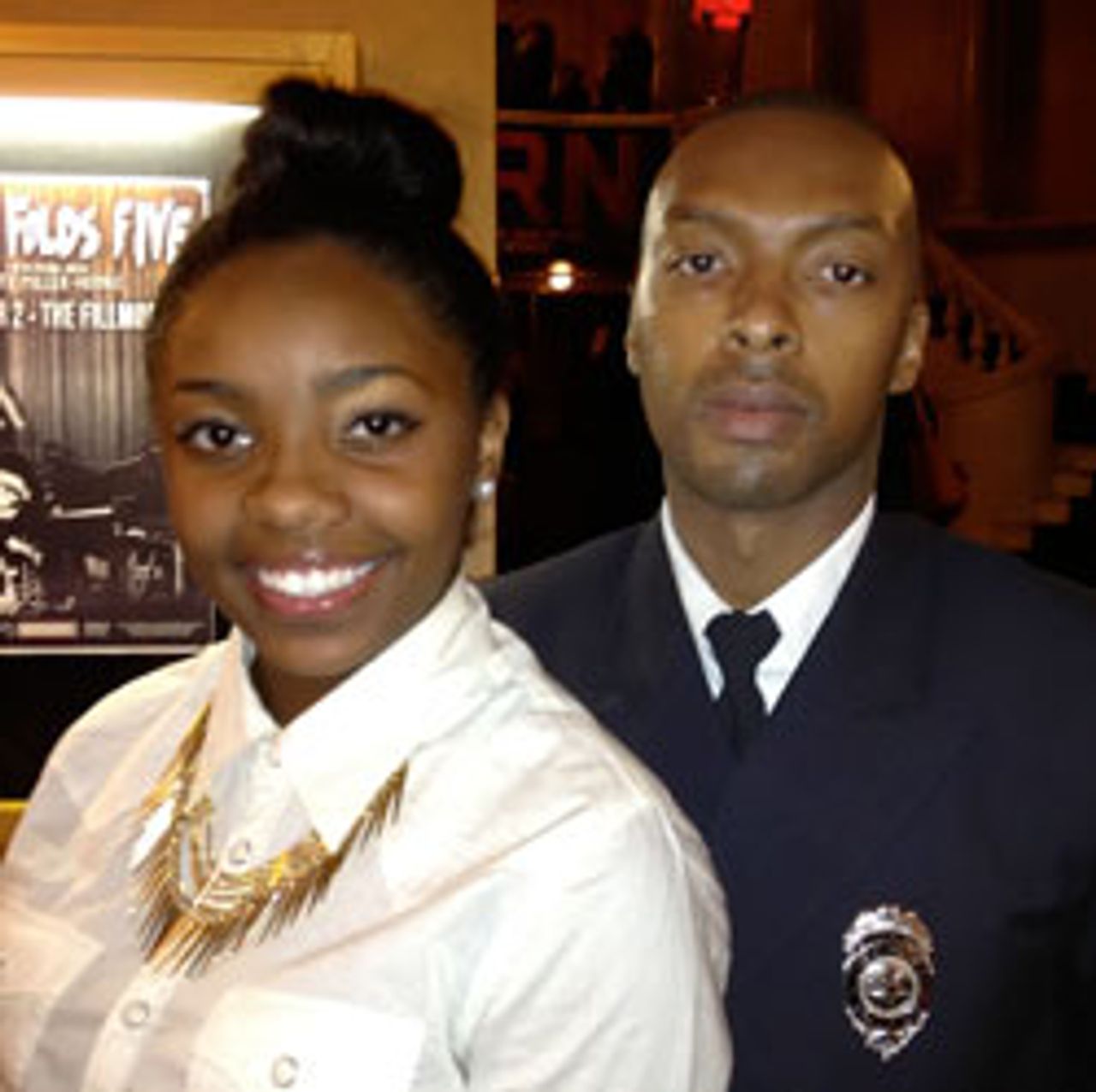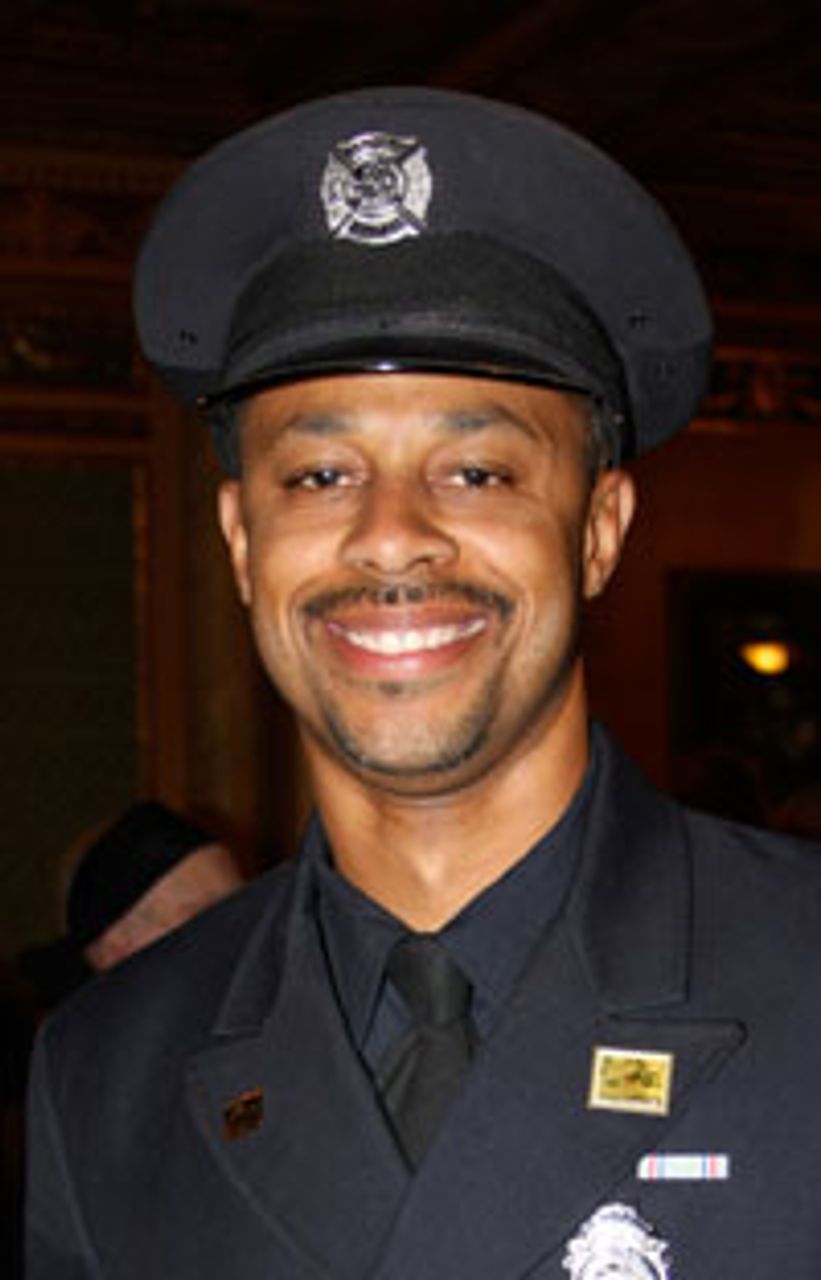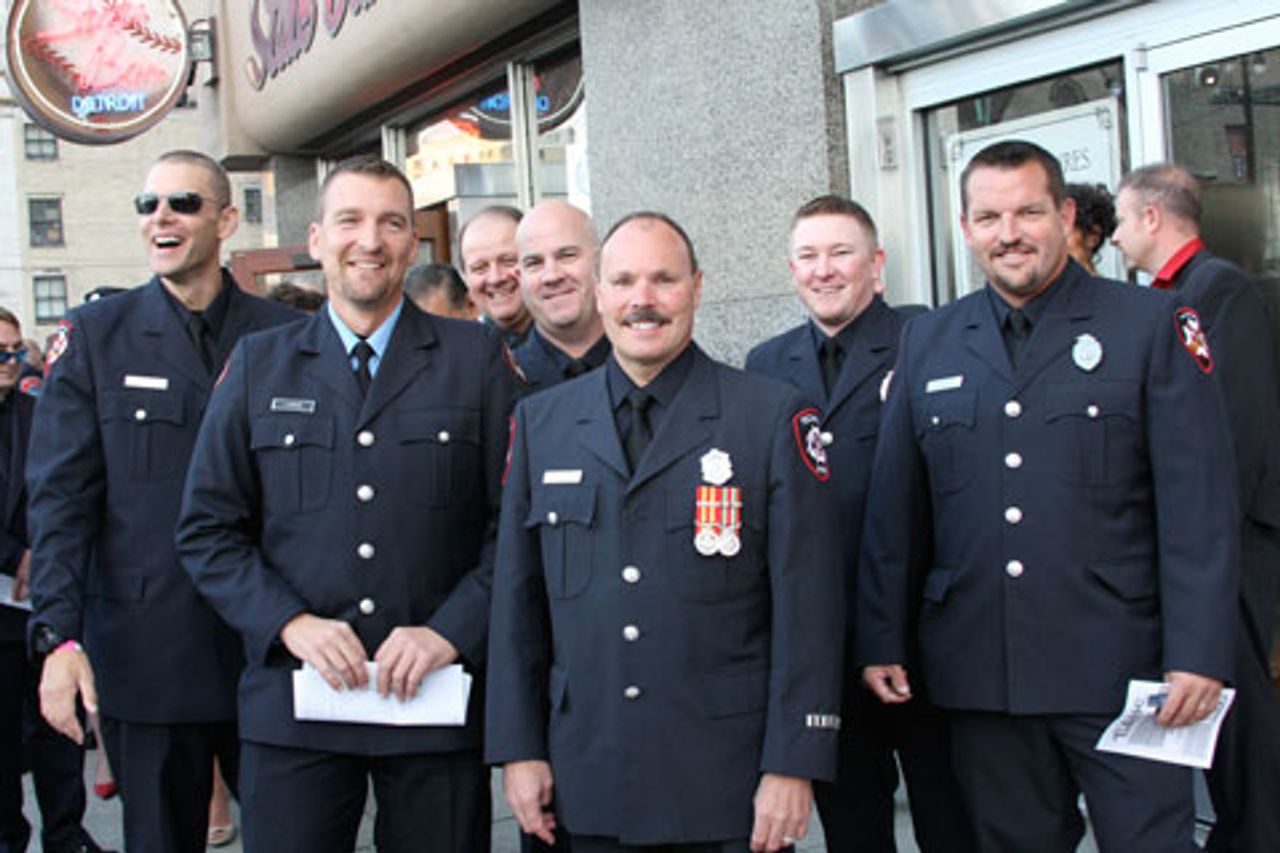WSWS reporters spoke to a number of firefighters and family members at the premiere of Burn: One Year on the Front Lines of the Battle to Save Detroit.
 Shamari Matthew and Ken Estell
Shamari Matthew and Ken EstellShamari Matthew and Ken Estell stopped and spoke to us outside the Fillmore Detroit theater.
Shamari told us, “I loved the film. It showed the real character of the everyday lives of the firefighters. It showed a look at the city in a whole different way.”
“The film shows what we are going through, how we run into burning buildings to protect lives and property,” said Ken, a Pontiac, Michigan firefighter.
“And we do this regardless of the state of the equipment we are given. In Pontiac we have the worst equipment around, we do with less, just like Burn shows in Detroit. The equipment is beat-up and run-down, we piece it together with duct tape.
“In Pontiac [a suburb north of Detroit], our entire department was shut down. We were combined with Waterford, but the Pontiac firefighters had to come in at the bottom. We took a cut in pay of between $15,000 and $25,000 a year. I had topped out in Pontiac and now I am back, averaging about $14.50 an hour. (See: “Pontiac, Michigan firefighters fight cuts”)
“Even though they cut our pay, we still do our jobs and lay it on the line. We do it because we love our jobs and love the citizens, even though we make no money. Pontiac is now down to two stations. It closed three.
“DTE Energy shuts utilities off on people in Pontiac just like they do in Detroit. Then people resort to illegal stuff. How can they live in the cold? They do what it takes to stay warm, but that causes fires. There should be a way around this problem.”
Ray, another firefighter, also commented on the utility giant. “DTE has astronomical rates people can’t pay. And if you’ve got kids, you’ll do what you have to do to make sure they have heat,” he said, referring to so-called illegal hookups.
“In 2010, when we had 80 homes burn in one afternoon, DTE called it the ‘Perfect Storm.’ It was called a ‘natural disaster.’ In reality, it was DTE’s negligence. They have lines that are fifty years old and get no maintenance. That’s what caused all those fires.”
 Detroit firefighter Dennis Hunter
Detroit firefighter Dennis Hunterwas featured in the film
Detroit firefighter Dennis Hunter, who appears in the film, told the WSWS, “I thought this movie would be a good opportunity for citizens to see what we actually do. Most people have no clue. What they see on the news is us maybe standing outside with a hose, but they don't actually know or would never have the privilege of seeing a fire from the interior standpoint. So I thought it would be good for them to see our working conditions and everything else that we do.”
Asked about the film’s comment that the Detroit Fire Department puts out fires from the inside out, Dennis commented, “Yes, that’s true. If it’s a fire that's totally involved, we'll put it out from the outside. But you've got to remember that you might have a fire that's in one or two bedrooms, and if you're standing outside and put water in there, you’re really going to push it through the house.
“Fire runs through walls and crawl spaces and hides, so you have to extinguish it and then open up walls to find it and make sure it's stopped. Every house doesn't burn down. We stop a lot houses from burning down so that you can live in it the next day.”
Dennis said this is not a unique method of firefighting, but that, “we just have so much of it that we have to hit them fast. Houses are close together and you have so many that you need to hit them quick.”
“The main thing,” he emphasized, “is that our job is about saving life and property.
Period. So if your life isn't involved then we need to try and save your property if we can. Bottom line.
“We average about to 30-40 fires a day in the city. So each night a firehouse’s work varies. I might have one fire a night, I might have six. It all depends.”
Asked about utility shutoffs and illegal hookups in the city, Dennis estimated about 20 percent of fires were in this category. In such cases, he explained, firemen must first try to shut off the power and be extremely careful.
 Dan Redmon, center, and fellow Ontario, Canada firefighters who came to see the film
Dan Redmon, center, and fellow Ontario, Canada firefighters who came to see the filmDan Redmon, from Ontario, Canada, told the WSWS, “We're coming to support the Detroit Fire Department with this documentary. The heartache and all the things they're going through in Detroit are really unfortunate to see. So we try to help out and do our part by coming and supporting them.
“To see the work that they do and the amount of fires they have, with the lack of equipment they have, is amazing.
“Many people here live without utilities. I don't know how they expect people to survive, especially with winter coming. We've heard that they've just given up hope on certain areas and black them right out. I don't know how they can let people inhabit those type of areas. We're all human beings. Maybe some of the politicians should come live in one of these neighborhoods for a while just to see what it’s like.”
